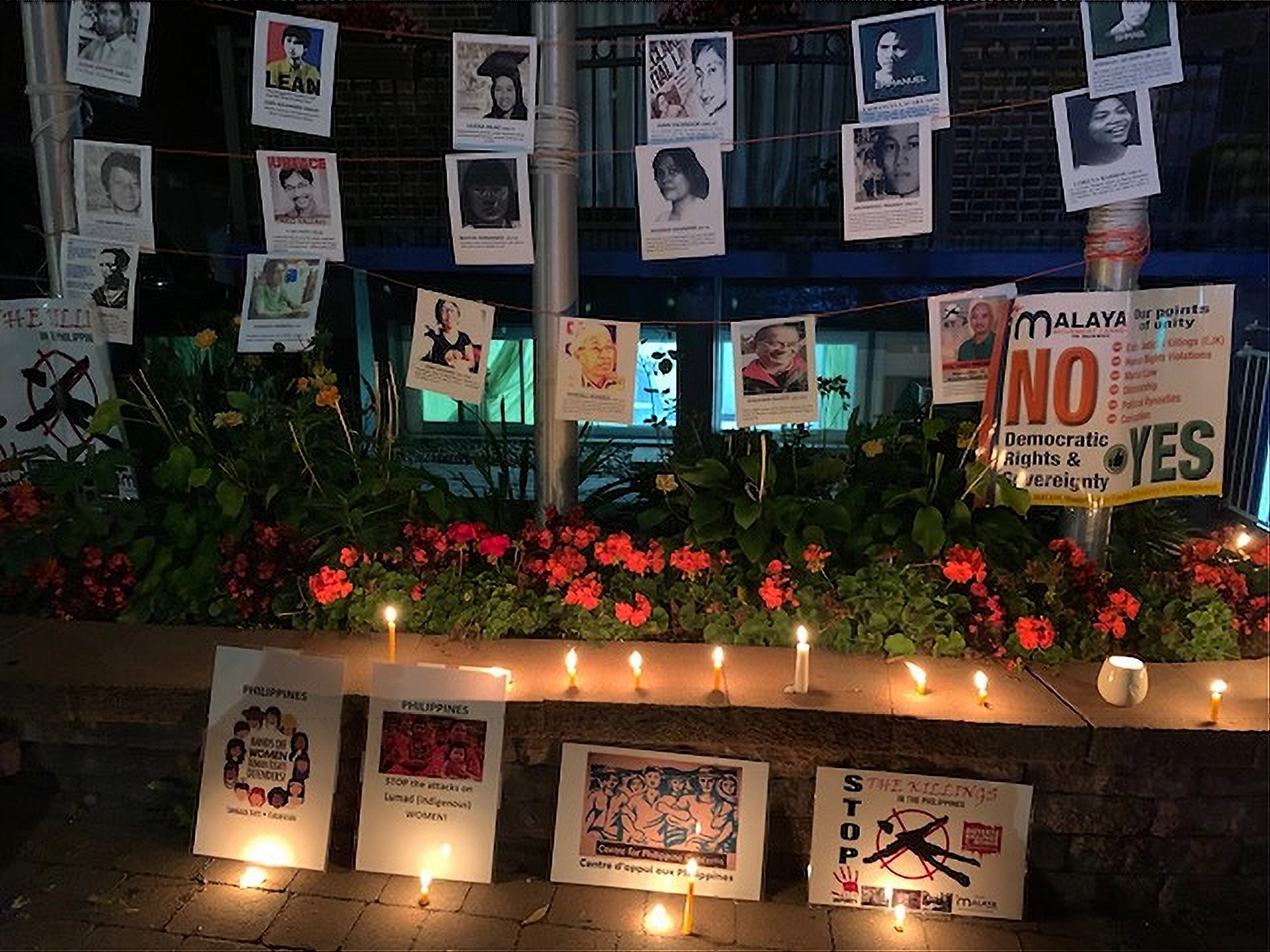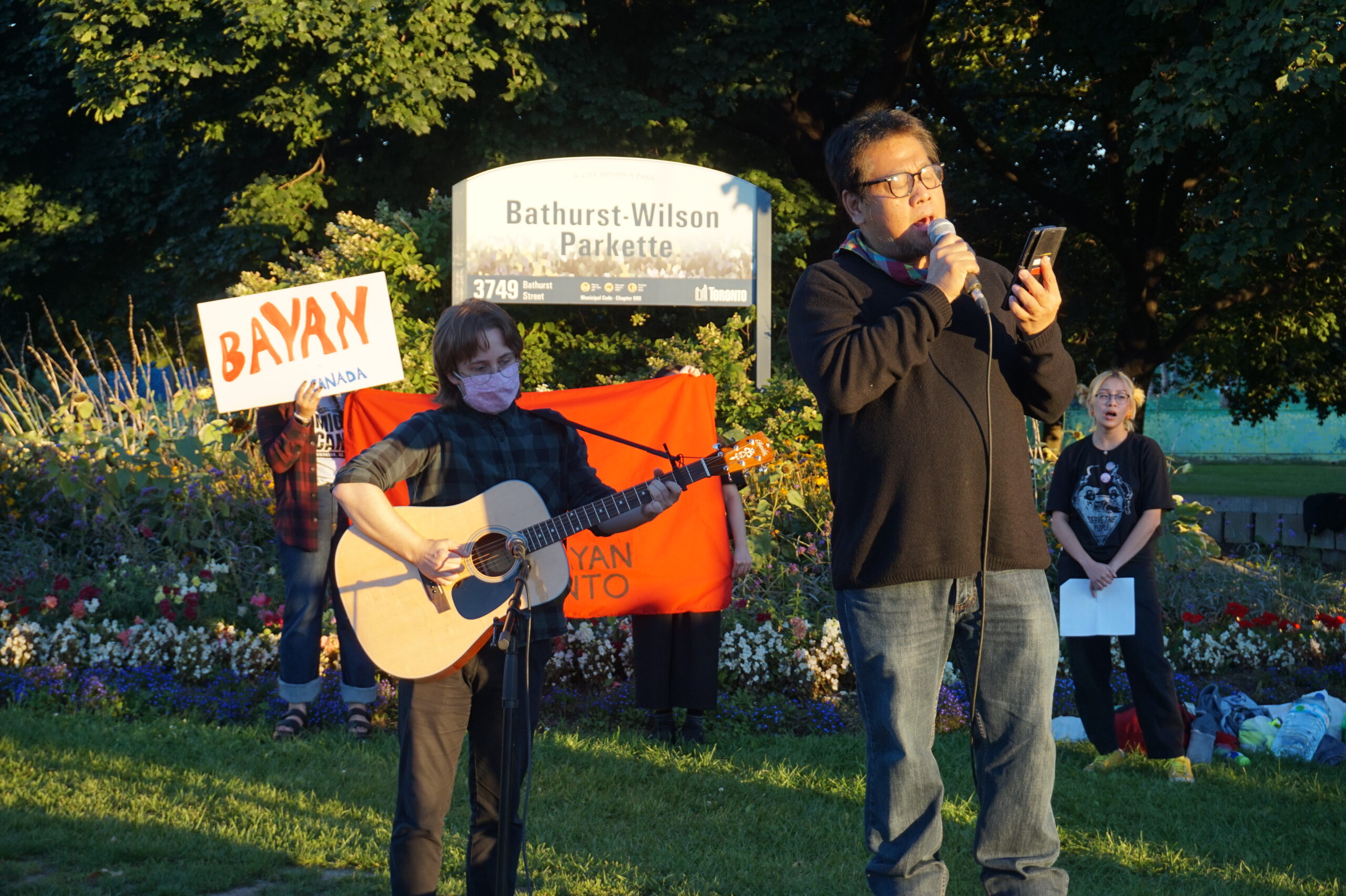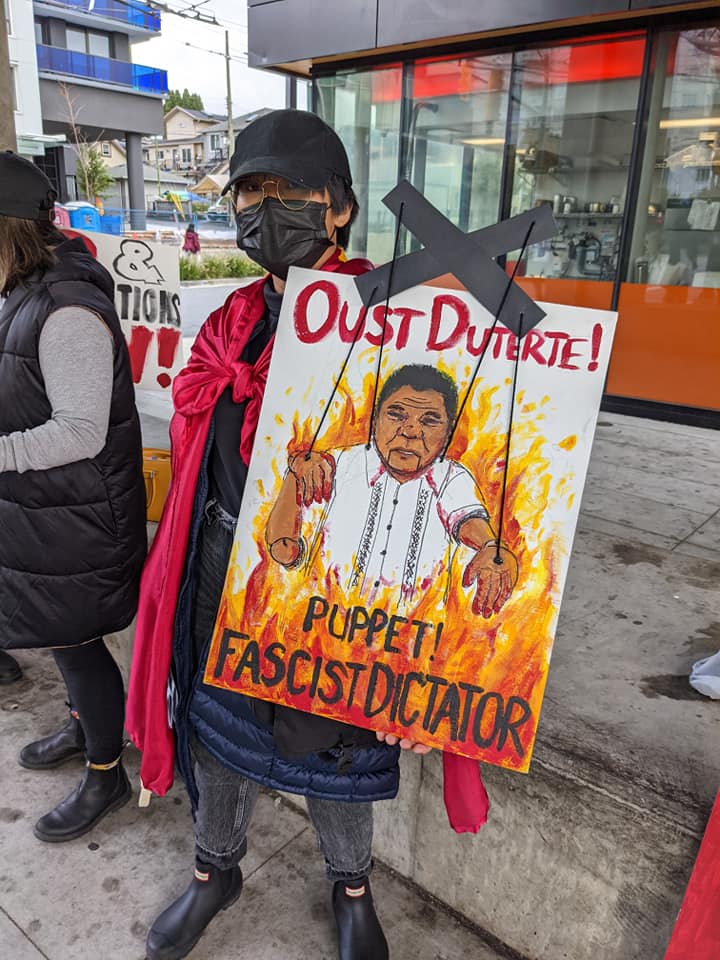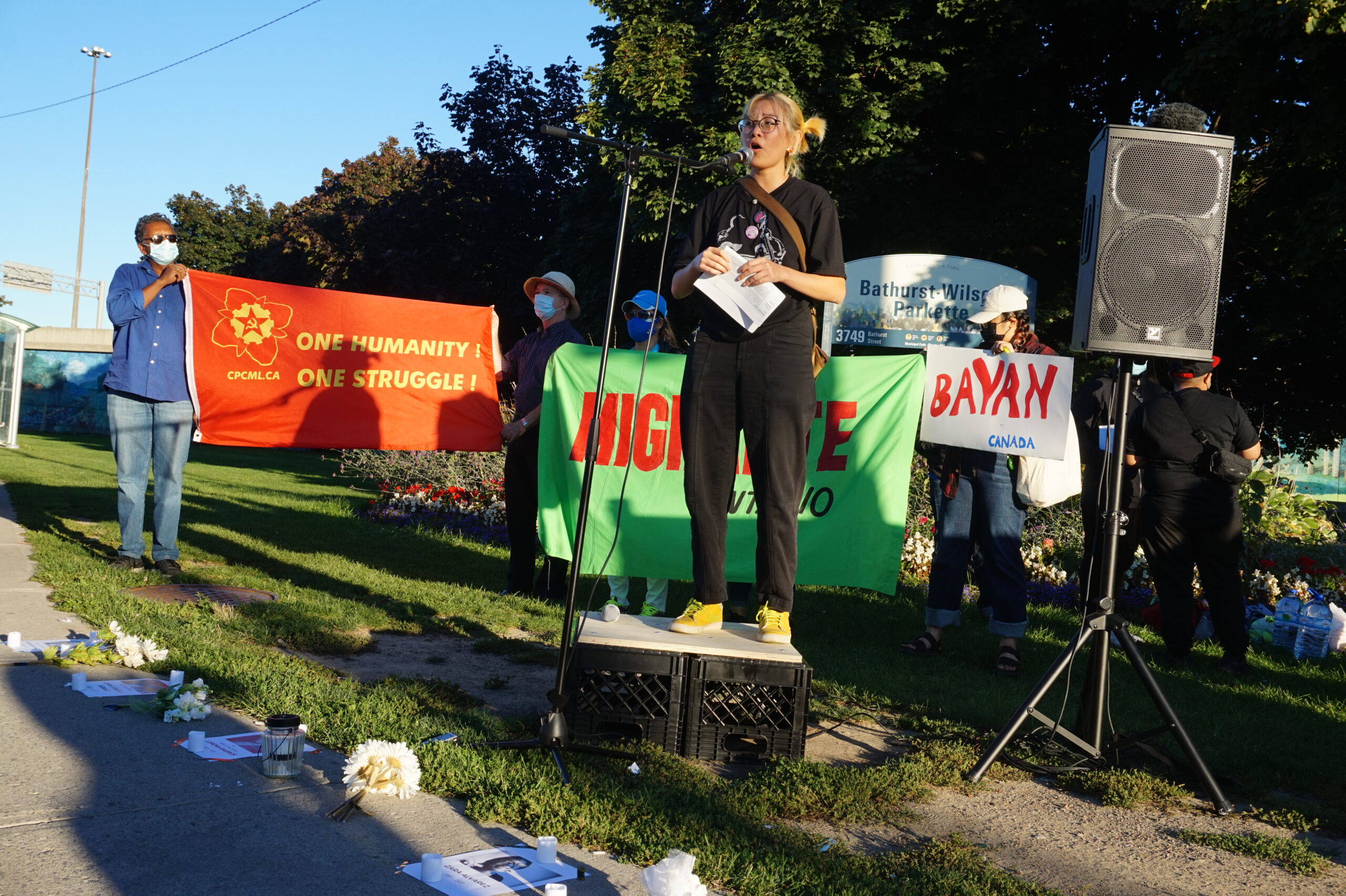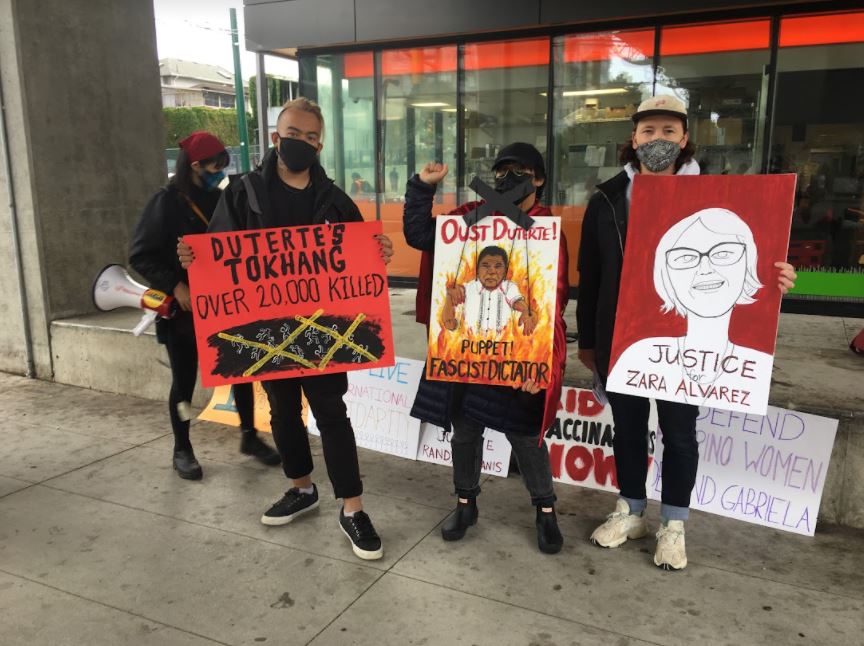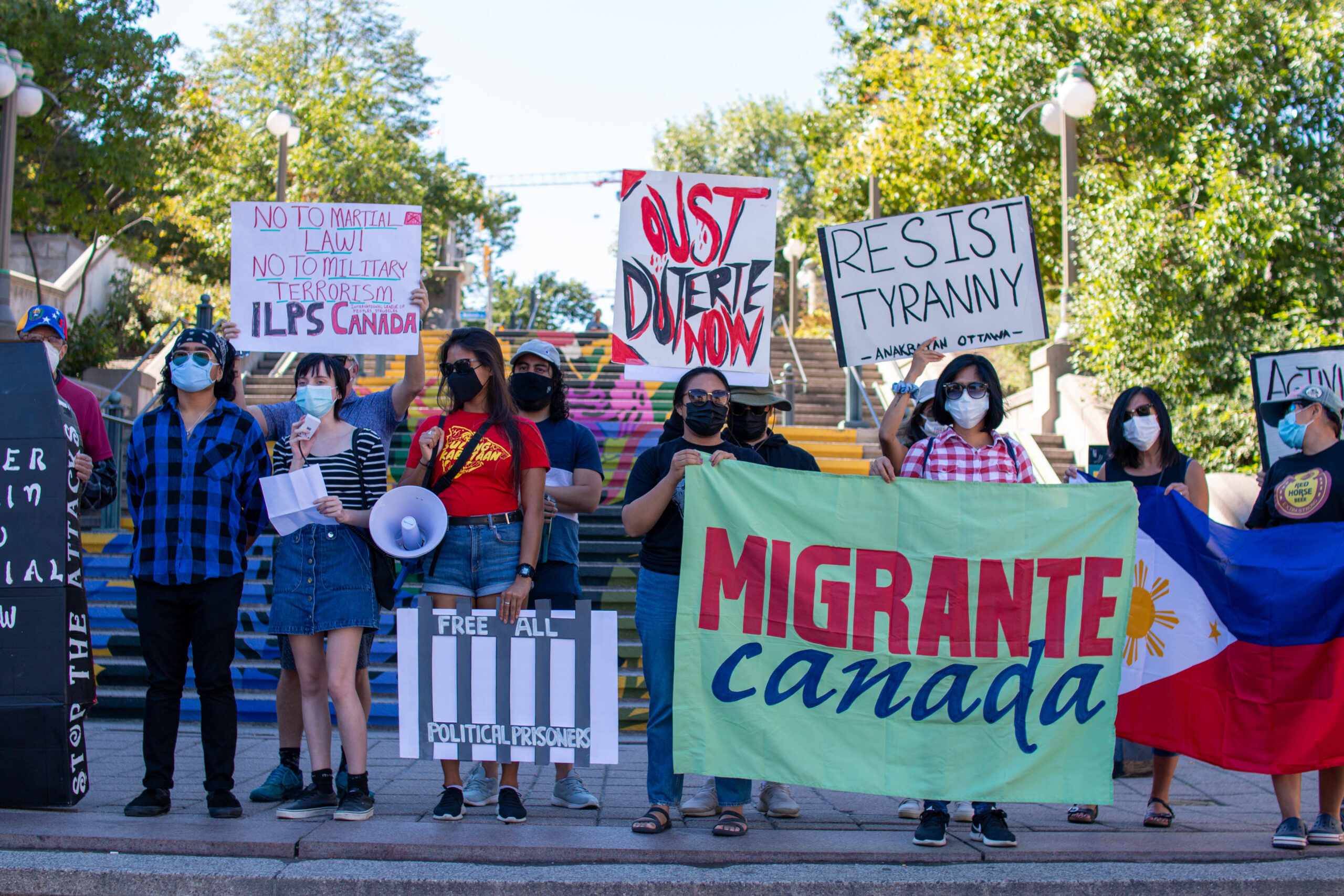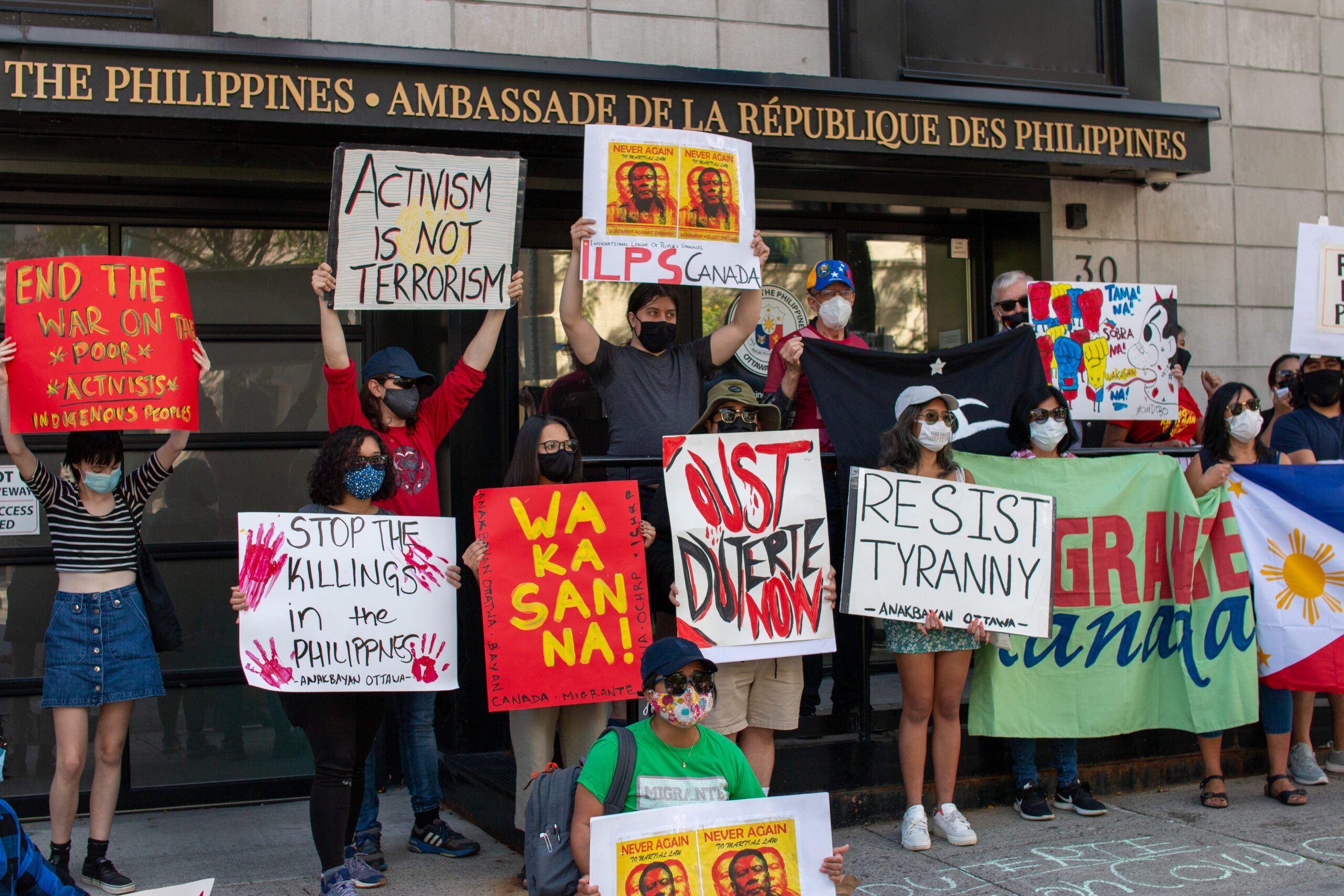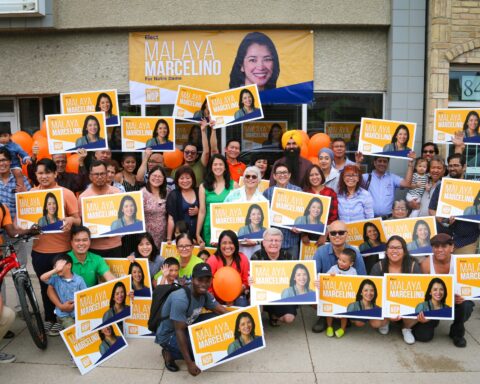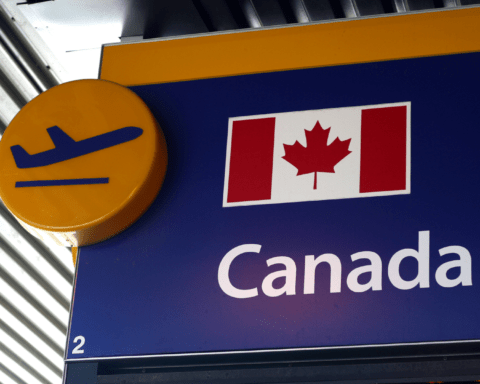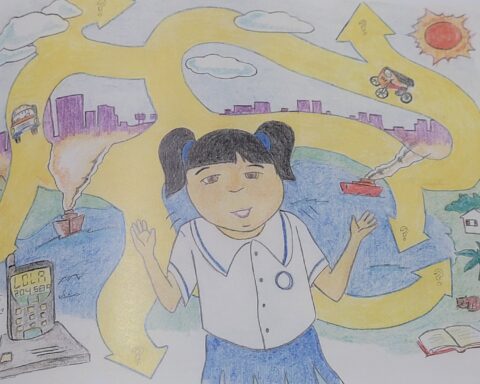Over the span of several days, Filipino-Canadians commemorated the 49th anniversary of the declaration of Martial Law in the Philippines by honouring the memories of its victims and survivors.
Demonstrators at several events throughout the country also took the opportunity to denounce what they consider de facto Martial Law under current President Rodrigo Duterte for alleged curtailment and violation of human rights.
Through protests, information campaigns, vigils, films and religious services, organizers hoped to remind Filipino-Canadians of the atrocities committed during the 21-year rule of late dictator Ferdinand E. Marcos ‒ because the same dictatorial rule persists under Duterte, they said.
“That’s why we cry out ‘Never again to Martial Law and tyranny!’” Chris Sorio, a community leader in Vancouver and Martial Law victim, said in Tagalog. “People ask, ‘why are we still protesting?’ We are still protesting because the lives of Filipinos have not improved. The situation in the Philippines has even worsened under the Duterte regime.”
‘Never Again’
In Vancouver, B.C., Filipinos gathered at the Joyce Collingwood station, a popular destination among Filipinos in the area.
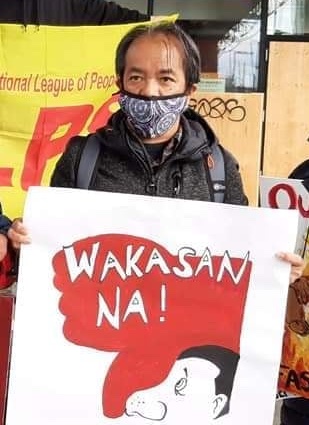
Sorio, the chairperson of BAYAN Canada, chanted “Never again! Never forget!” alongside about 50 others holding placards. They called for Duterte’s ouster and criticized his failings, including the scarce economic help to deal with COVID-19, lack of support for frontline healthcare workers and the expatriation of overseas Filipinos who had to come home due to pandemic related lockdowns and attrition.
Sorio was illegally detained and tortured in 1982 for protesting rising tuition fees. He is one of thousands of claimants of a $2-billion class action lawsuit filed in Hawaii in 1986 against Marcos for human rights violations.
“Never again!” is in reference to the protesters’ disdain for Duterte, whose regime, they said, echoes Marco’s tyrannical era given the thousands of extrajudicial killings and suppression of press freedoms. In a move reminiscent of Marcos’ dictatorship, broadcast giant ABS-CBN, which has been critical of Duterte, was closed down in 2020 when Congress failed to renew its broadcast licence.
In an interview with New Canadian Media, Sorio said it is important to commemorate Martial Law because remnants of the “dark days” in Philippine history are still in play. He cited the Anti-Terror Law signed by Duterte in 2020 which labels critics of his administration as “terrorists.” Sorio said this law is no different from the laws Marcos passed to curtail human rights including the Presidential Detention Action and the Presidential Commitment Order, which arbitrarily detained Marcos’ critics without due process.
Similar actions took place in Quebec, Ottawa and Toronto.
In Ottawa, Filipinos and supporters protested in front of the U.S. Embassy before marching to the Philippine one.
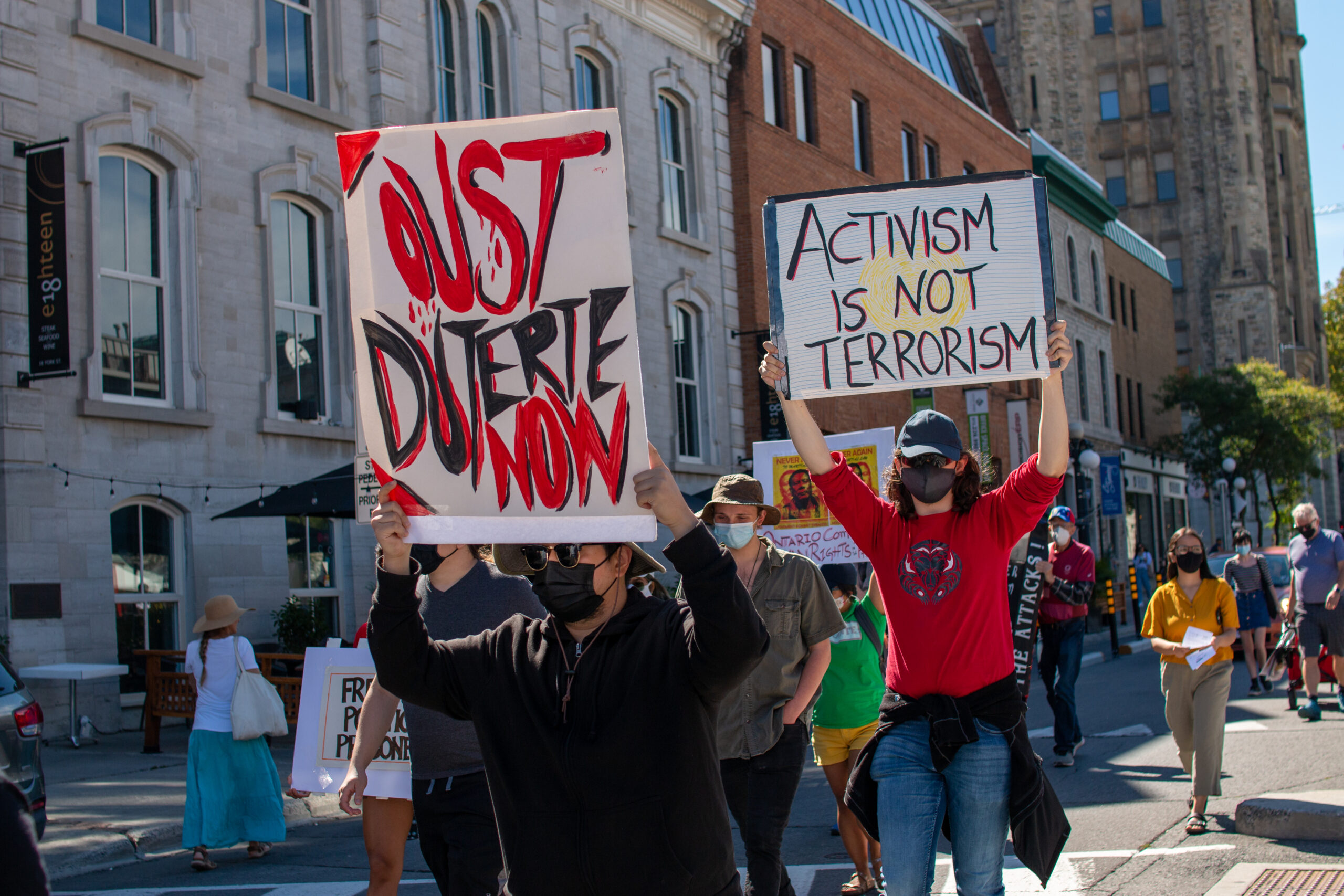
KC Mabuhay of Migrante Ottawa told NCM that with the two embassies located in Canada’s capital, the protest of the Filipinos was significant.
“When we demonstrate in front of these embassies, we are addressing the forces that directly oppress and exploit the masses,” he said.
American, Canadian Ties Criticized
Filipinos criticize the close ties of the Philippines with the U.S., saying that American intervention in the Philippines persists.
“The U.S.-Duterte regime continues the rampant graft, corruption, and violent suppression of dissent of the people that was present during Marcos’ Martial Law,” said Mabuhay, a chosen name, for he identifies as queer or non-binary. And though Filipinos are miles away from home, he said, “the exploitative systems and institutions developed by Marcos and maintained by the U.S.-Duterte regime have created the conditions that led to our forced migrations abroad.”
Filipinos and supporters in Toronto gathered for a vigil protest at the Bathurst Wilson Parkette in the west end of the city. The venue is within what is locally called “Little Manila” because of its many Filipino shops and restaurants and the many Filipinos who live in the area.
Stef Martin, secretary-general of Migrante Canada, told NCM that the event was to honour and remember victims of Martial Law, but also to continue to fight “the injustices that we see now and the worsened conditions in the Philippines, and even how overseas Filipinos are being treated.”
Groups estimate that about 6,000 Filipinos leave their country daily. Some of them come to Canada as migrant workers through the federal temporary foreign workers program and the caregivers program.
There are almost a million Filipinos in Canada, most of them residing or working in four provinces ‒ Ontario, B.C., Manitoba and Alberta.
Some in the Filipino community are calling for status for these migrant workers upon arrival to free them from precarious work conditions associated with tied work permits, which includes abuses from employers who fire them if they report them, forcing them to pack up and go home.
In Montreal, Que., Filipinos and supporters also held a protest action at Van Horne Park ‒ again, another place that Filipinos frequent.
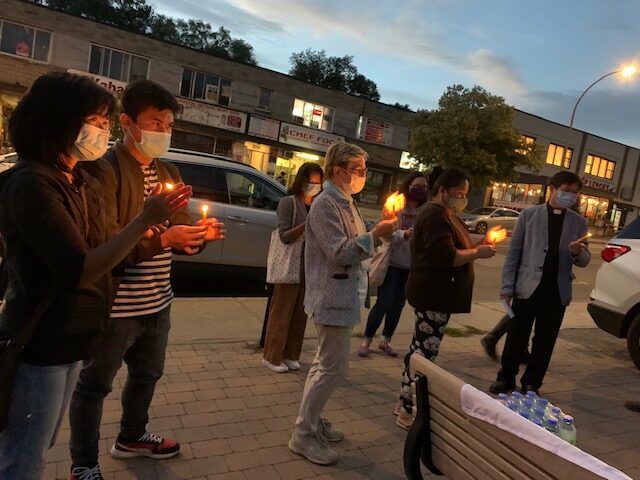
They also had a vigil in the evening of Sept. 21 at the FAMAS Center, a venue where Filipinos routinely converge. Posted on a black drape were pictures of victims of Martial Law and Duterte’s administration, most of them human rights defenders.
Thelma Castro, national convener of Malaya Movement in Canada based in Quebec, said Malaya calls on the Canadian government to pay attention to the human rights issues in the Philippines. Some of the issues allegedly involve Canadian mining firms whose activities have displaced some Indigenous Peoples.
Marcos’ Martial Law
Marcos declared Martial Law on Sept. 21, 1972 and immediately imprisoned his political opponents and suppressed press freedom by closing media companies, including broadcaster ABS-CBN Corporation. Human rights violations and militarization continued even after the lifting of Martial Law in 1981.
By 1986, after 21 years in power – the longest that any Philippine president has ruled – he was ousted through the People Power Revolution.
The number of victims – including those imprisoned, tortured, killed, missing and presumed dead – varies.
BAYAN Canada estimated that 70,000 were imprisoned, 35,000 tortured and over 3,000 killed. These were the same data referenced by Philippine media citing Amnesty International.
ABS-CBN research cited at least 9,000 victims from 1969 to 1986, according to Task Force Detainees of the Philippines.
Veronica Silva Cusi is a multimedia journalist and researcher with more than two decades of experience as a reporter/writer and editor. She also taught journalism and communication courses for 14 years at the university level. Veronica also writes and edits technical reports, such as research reports and training materials, and marketing communications materials, such as brochures and newsletters. Veronica holds two master’s degrees -- in communication research and journalism. She also conducted media training while a university lecturer.

